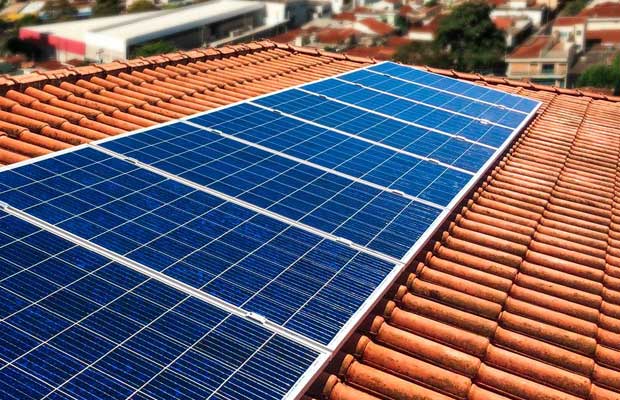

The Ministry of New and Renewable Energy (MNRE) has issued a notification with the latest benchmark costs for the installation of new grid-connected rooftop solar PV systems for the present financial year i.e. FY 2020-2021.
As per the notification, projects with a capacity of more than 1 kW and up to 2 kW, the benchmark cost has been set at Rs 43/W, or Rs 43,000 per kW. This benchmark cost has been reduced by a staggering Rs11/W when compared to the cost set in the previous fiscal in which such projects attracted a benchmark cost of Rs 54,000 per kW. Which happened to be, Rs 6/W (Rs 6000/kW) lower than the previous year i.e. 2018-19.


However, in the special category states – North-Eastern states, Uttarakhand, Himachal and the Islands – the benchmark has been set at Rs 47/W or effectively Rs 47,000 per kW Down Rs 12,000 per kW from the previous fiscal.
For projects with a capacity above 2 kW and up to 3 kW, the rate for general category states will be Rs 42/W and for special category states Rs 46/W. And for projects with a capacity above 3 kW and up to 10 kW the rate has been set at Rs 41,000 per kW (General) and Rs 45,000/kW (Special).
In the size category >10 kW and up to 100 kW, the benchmark has been set at Rs 38,000 per kW in the general category states. Down from Rs 48,000 per kW in 2019-20. In the special category states the rate has been lowered to Rs 42,000 kW from Rs 53,000 per kW in the previous fiscal.


Finally, in the >100 kW and up to 500 kW category, the benchmark has been set at Rs 36/W in the general category states. Down from Rs 45,000 per kW in 2019-20. In the special category states the rate has been lowered to Rs 40,000 kW, down Rs 10,000 per kW from Rs 50,000 per kW in the previous fiscal.
As per the MNRE notification, these costs are inclusive of total system cost including PV solar modules, inverters, the balance of systems including cables, switches/circuit breakers/ connectors/ junction boxes, mounting structure, earthing, lightning arrester, cost of meters (if any other than net meter), local connectivity cost, cost of civil works, foundations, etc. and its installation, commissioning, transportation, insurance, the capital cost of online monitoring, comprehensive maintenance charges for five years, applicable fees and taxes, etc.
However, the above-mentioned benchmark costs are excluding net metering cost and battery back-up costs.
The MNRE also stated that the above-mentioned benchmark cost is indicative only. And that all participating Discoms under phase II of the rooftop solar programme will ensure that the rate is discovered through a transparent bidding process. The rates will be applicable for all LoAs to be issued/ empanelment of developers/vendors to be done after July 31, 2020, by the implementing agencies in States/UTs.
Source: saurenergy.com
In a significant move toward advancing green energy and industrial growth in the state, Himachal…
Golabl chemical conglomerate BASF has announced that its now offering the world’s first biomass-balanced polyethersulfone…
In a crucial stint to bolster the biogas sector and sustainable dairying in the country,…
TotalEnergies SE has received approval to proceed with its Middlebrook solar and battery project in…
Andhra Pradesh Chief Minister Chandrababu Naidu has inaugurated the Rs 1,000-crore green hydrogen plant of…
The BITS Pilani has developed an innovative solution for managing landfill leachate, domestic septage, and…